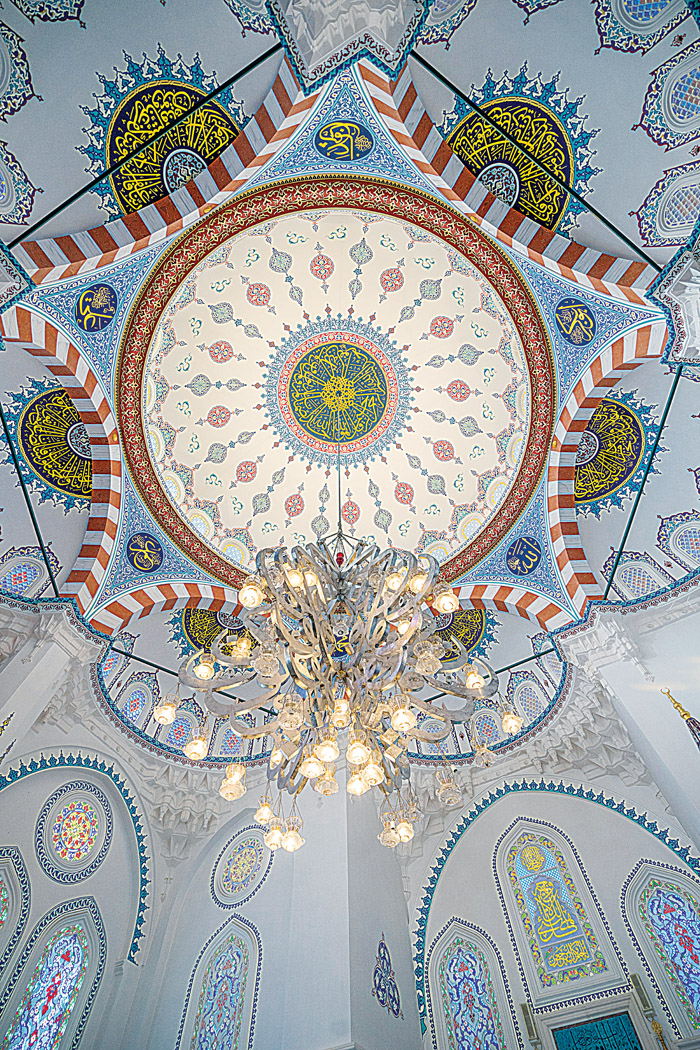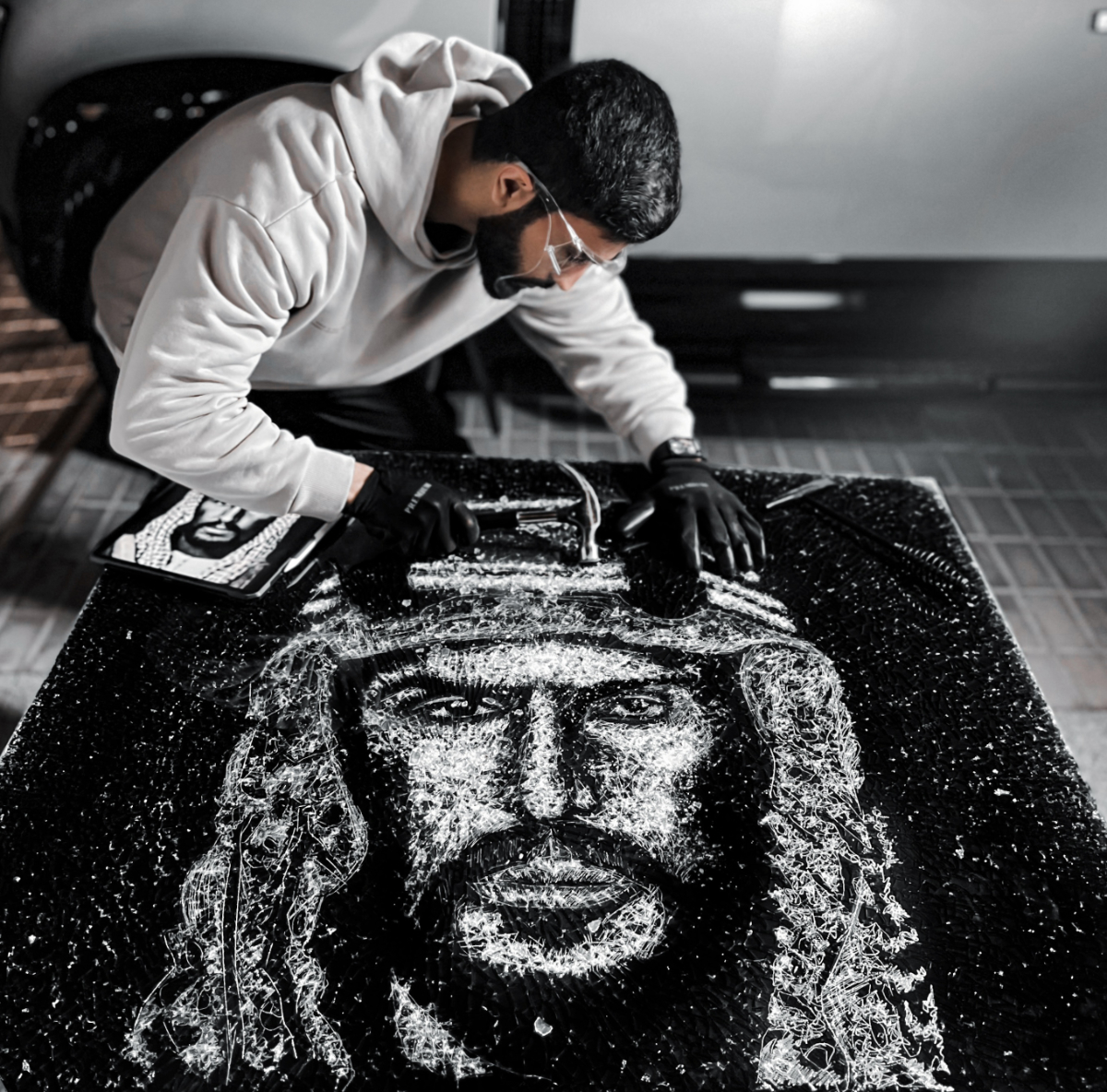TOKYO: Furat Bantan is a Saudi translator who has been working in Japan for the past 13 years. He says his life’s goal is simple: To become one of the best Arab translators of the Japanese language and eventually to become a bridge between the Arab world and Japan.
Bantan is currently a translator for the embassy of Lebanon, having earlier worked for the Arab Islamic Institute of Tokyo. The institute, which is an affiliate of the Al-Imam Mohammad ibn Saud Islamic University in Riyadh, was a gift to Japan from the Saudi government with the hope it would help to build cultural ties and foster understanding of Arabic culture.
“I want to deepen my understanding of Japanese culture and religion so that I can relate to their way of thinking and become able to convey Islamic teaching in a way that they accept and understand,” Bantan told Arab News.
Islam is one of the most practiced religions in the world, with the Pew Research Center putting the number of Muslims at about 1.6 billion worldwide. Islam also has one of the highest growth rates of all the world’s faiths, with the Pew survey projecting that the number will rise to 2.8 billion in 2050.
However, the Japanese Muslim community is very small compared to the Muslim populations of many other East Asian countries. Although the exact size remains a matter of speculation, official studies have put it at 100,000-185,000, which for a country of 126.8 million people does seem tiny. Put differently, Muslims make up less than 0.1 percent of Japan’s population.
What Muslims in Japan lack in numbers, however, they make up for with spirit. A number of organizations are dedicated to preserving Islamic traditions and providing religious services. Among the more prominent ones are the Japan Islamic Trust, the Islamic Center of Japan, and the Nippon Asia Halal Association.
There are more than 200 mosques scattered across the country, ranging in size from large, elaborate structures such as the Tokyo Camii in the Shibuya district of the city to small prayer rooms in universities and public-transport facilities.
MAINMOSQUES
● Kobe Mosque, Kobe
● Tokyo Camii, Tokyo
● Okachimachi Mosque, Tokyo
● Otsuka Mosque, Tokyo
● Nagoya Masjid, Nagoya
● Dar Al-Arqam Masjid, Tokyo
In recent years, Indonesian Muslims in Japan have been organizing donations and collecting funds to build small mosques in apartment buildings and offices in rural areas for the benefit of Muslims who live outside the larger metropolitan centers.
The Arab Islamic Institute of Tokyo, where Bantan used to work, provides free Arabic classes to Japanese citizens interested in learning the language. More people are interested in taking the classes than one might imagine, he told Arab News, adding that “Japanese people are a lot more curious about Islam in today’s political climate.”
Bantan said he has seen many Japanese embrace Islam after being exposed to the lessons and cultural guidance of the local Islamic organizations. “In my time with the Arab Islamic Institute, I would see two to three people a week coming in to take their shahadah,” he said, refering to the Muslim profession of faith.
“We even have Japanese Islamic preachers now, experts on Islam who are having an impact on bringing their own people into the fold.”
The reason Japan’s Muslims form a small demographic today has a lot to do with the way Islam reached the country. The religious history of Japan is very different from that of most other East Asian countries, notably China, where Islam has been practiced for more than 1,400 years as a result of efforts by Prophet Muhammad’s Companions to visit China for trade and to spread the message of Islam.
Ibn Khordadbeh, a Persian geographer, is believed to have been the first person to bring Islam to Japan as early as the 9th century. However, the Muslim population gained significance only after the Bolshevik Revolution, when Turko-Tatar Muslims fleeing Russia were given asylum in Japan. These refugees later came into contact with the local population, resulting in a number of Japanese choosing to convert to Islam.

The interior of Tokyo Camii or Tokyo Mosque.
An important event in the history of Islam in Japan was the completion of the translation of the Holy Qur’an in 1968 by Umar Mita, a Japanese Muslim whose original name was Ryoichi Mita. With the approval of the Muslim World League in Makkah, the Japanese Qur’an was first published in 1972.
Modern Japan has extensive business relations with the Islamic world. The volume of annual trade between Japan and Saudi Arabia alone is currently worth $26.67 billion. For Saudi Arabia, Japan is the top global export destination, the second-largest source of foreign capital and the third-biggest trading partner.
But how easy or difficult is life for a Muslim in Japan today? As a Saudi immigrant who has lived in Japan for almost 12 years now, Abdulaziz Alforieh knows the pros and cons well. He received a master’s degree from the Nippon Institute of Technology and elected to live on in Japan. He runs a company with local partners.
Alforieh said he has had no bad experience due to his faith, which he thinks is because Japanese are not the kind to openly discuss topics such as religion with strangers or casual acquaintances.
“If they are aware that you observe a certain type of religion, they are very respectful of it, whether they approve of it internally or not. If I’m out in public and I need to find a corner to pray in, no one minds,” Alforieh told Arab News.
It is rather difficult to find halal food, he said, although speaking Japanese can make a big difference. “It is difficult to find English-language speakers outside of tourist areas,” he said. “But as long as you can communicate with the locals, finding Muslim-friendly food is that much easier.”
One thing that Alforieh has noticed is that Japanese media outlets tend to focus on the more misunderstood aspects of Islam. These topics stir a lot of interest but do nothing to educate the audience, he said, referring to the taboo against eating pork or drinking alcohol (two staples of Japanese cuisine) and the idea that every Saudi man has four wives.
“But we all do our part to correct those misconceptions, and hope we can make an impact,” he said.
Regarding observing Ramadan in Japan, Alforieh saidd he finds it easier to fast there than back in Saudi Arabia. “Every company I’ve worked for has been Muslim-friendly,” he said. “Colleagues became interested in fasting after seeing me do it and tried it out for themselves. Being busy at work makes time fly. I hardly even notice it.
“I miss the atmosphere of celebrating Eid with my family, though. Despite the best efforts of the Islamic community, it just doesn’t feel the same here as it does back home.”
As Muslims, Alforieh and Bantan, the translator, each have a message for the people of Japan. “Everything you do pays off. Keep trying to put good out into the world,” Alforieh said.
For his part, Bantan said: “Read about Islam. Educate yourselves. Don’t just listen to what the media or people around you are saying.”









































